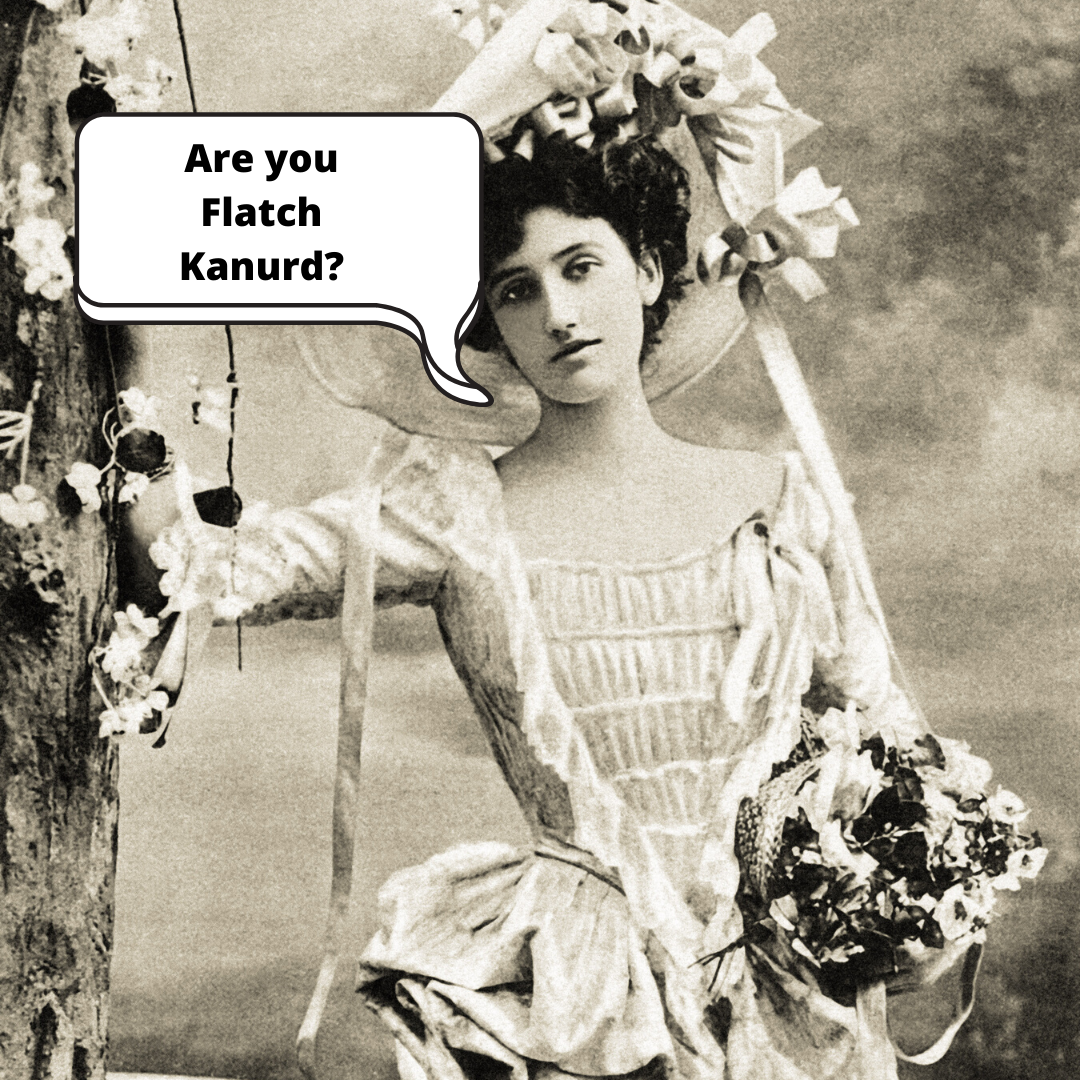Have you ever wanted to talk like a Victorian Londoner – not a posh one, but a street kid with plenty of 19th century attitude? Maybe a character in a Charles Dickens novel like the Artful Dodger? Here is the guide to Victorian slang!
Now let’s talk Victorian slang!
Well, I’m now going to teach you how to talk like a London urchin circa 1851. I’m using various sources but Mayhew’s London published that year is where I’ve picked up most of the terrible language that follows! If I said you were flatch kanurd – I’d have meant you were half-drunk. I might also add that you’re kennetseeno – which means stinking, but it was a word normally applied to rotten fish. There could be a police officer passing by and I’d tell you to cool the esclop (look at the policeman).
DISCOVER MORE: Victorians and Edwardians on film
“Cool the” or “Cool ta” seems to have been a way of saying “look at that” – so if I was getting you to stare at an old woman, I’d say: “Cool ta the dillo nemo”. Or just to say “look at him” would be “cool him”.
The word for NO was “On” and the word for YES was “Say” – that’s just reversing those words. Often saying words backwards (back slang) or messing with the letter order was a way of talking to avoid being understood by the police or people outside your group. If you were warning your mates that somebody was a bad sort, you’d call them a “regular trosseno”. They might then respond that they understood you – “tumble to your barrikin”.
Victorian slang terms for money
Expressions for money were:
- Flatch = halfpenny (remember, flatch kanurd is half drunk)
- Yenep = Penny (messing round with letter order there)
- Exis Yenep = Sixpence
- Couter – Sovereign (big gold coin)
- Flatch ynork = Half-Crown
Then to conclude the day, I might say I’m on to the deb (I’m off to bed) or I was going to do the tightner (go to dinner).
Reversing the order of letters and syllables to create a dialect only understood by the initiated is something we see in both London and Paris slang. The Parisian working-class would swap round syllables so that ‘bizarre’, for example, became ‘zarbi’. But Londoners also liked to create an impenetrable rhyming slang, which has died out even in my own lifetime. I remember working with an east Londoner who ask me for ‘the bone’ in reference to the telephone – ‘dog and bone’, telephone. This was in a pre-digital age and he was asking to use my landline phone.
Victorian examples of rhyming slang include ‘cow and kisses’ = missus and ‘trouble and strife’ = wife. A suit would be called a ‘whistle and flute’ but like my work colleague in the 1980s, the expression would be shortened to ‘my whistle’ – as in, ‘what d’ya make of mah whistle?’ This would be understood by Londoners. ‘Brown bread’ was a common phrase for ‘dead’. In my early career in London, there used to be a ‘brown bread sweepstake’ at the start of each year where we all had to bet on which elderly and prominent global celebrity was going to die first – winner took all.
During the Victorian period, Londoners were heavily influenced by words from new waves of immigrants such as the Jews who came from Russia and eastern Europe, fleeing persecution, to live in the east end. Yiddish expressions gained broad currency. So you kept ‘shtum’ to remain quiet about something. Your nose became your ‘shnoz’. For food, say ‘nosh’. You might ‘schlep’ to somewhere – dragging yourself to a certain place.
Romani words also crept in to the London dialect including ‘nark’ for a police informer and ‘cove’ for a person. I’m told that ‘wonga’, which was used a lot to refer to money when I was young, is another Romani word. London slang is still evolving today incorporating Jamaican, Bengali and words from other languages. I was told this week by a Londoner that I was “on fleek” – turns out I’m dressed well. Good to know.
Polari was a slang used by gay men up until the legalisation of homosexuality in the 1960s. Its roots in London go back into the 18th century and maybe even earlier and incorporates words from other dialects. So, in one famous comedy sketch from 1965, a character talks in Polari about an ‘omi’ (man – Italian derivation) ‘with great bulging thews and whopping great lollies’. His hair hangs right down his ‘Jim and Jack’ (rhyming slang for ‘back’). It’s been conjectured for a long time that the word ‘naff’ – still used by Londoners – originally meant ‘not available for f..king’ in Polari. This is disputed by some people but sounds very likely to me!







